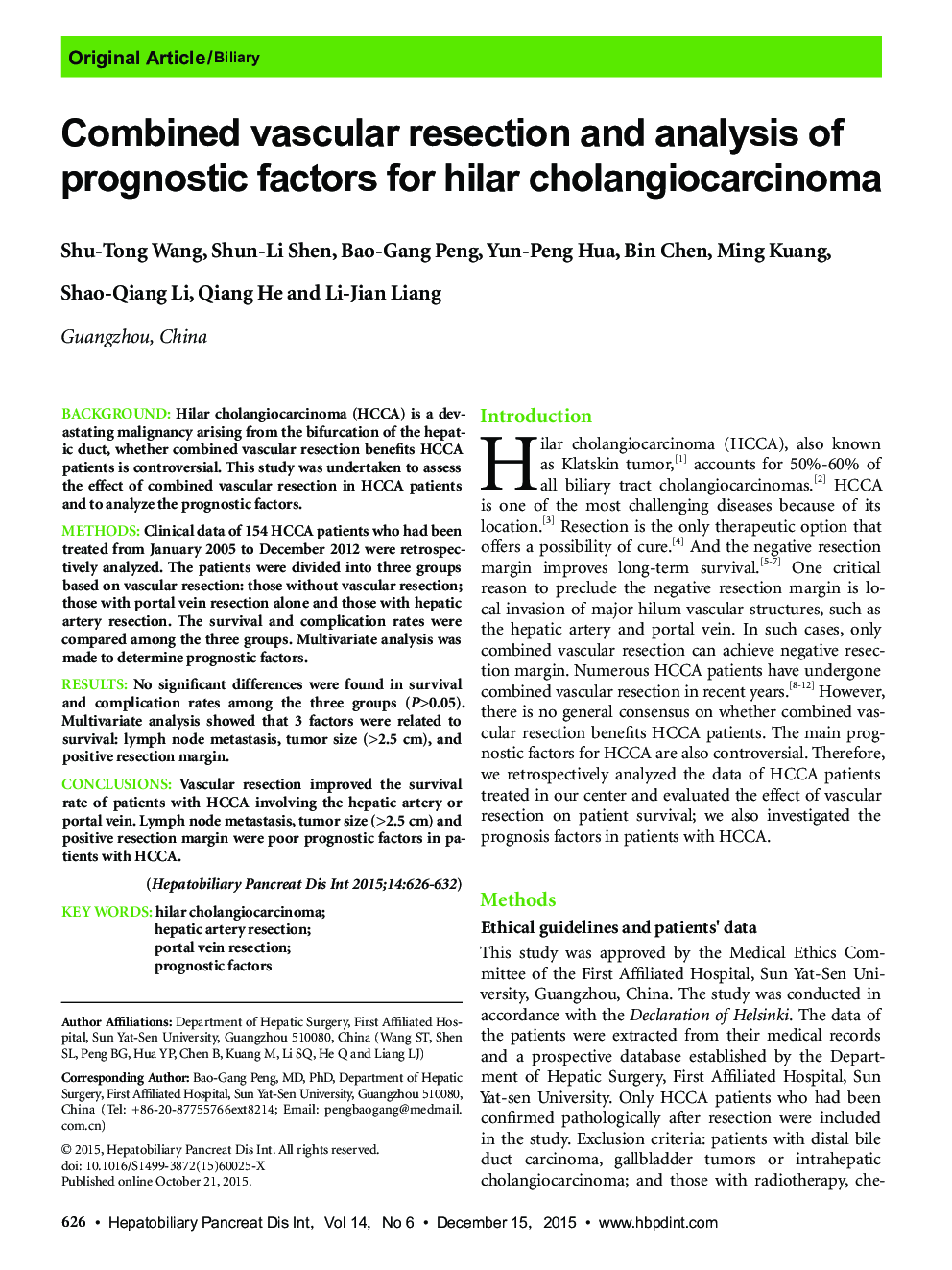| Article ID | Journal | Published Year | Pages | File Type |
|---|---|---|---|---|
| 3337260 | Hepatobiliary & Pancreatic Diseases International | 2015 | 7 Pages |
BackgroundHilar cholangiocarcinoma (HCCA) is a devastating malignancy arising from the bifurcation of the hepatic duct, whether combined vascular resection benefits HCCA patients is controversial. This study was undertaken to assess the effect of combined vascular resection in HCCA patients and to analyze the prognostic factors.MethodsClinical data of 154 HCCA patients who had been treated from January 2005 to December 2012 were retrospectively analyzed. The patients were divided into three groups based on vascular resection: those without vascular resection; those with portal vein resection alone and those with hepatic artery resection. The survival and complication rates were compared among the three groups. Multivariate analysis was made to determine prognostic factors.ResultsNo significant differences were found in survival and complication rates among the three groups (P>0.05). Multivariate analysis showed that 3 factors were related to survival: lymph node metastasis, tumor size (>2.5 cm), and positive resection margin.ConclusionsVascular resection improved the survival rate of patients with HCCA involving the hepatic artery or portal vein. Lymph node metastasis, tumor size (>2.5 cm) and positive resection margin were poor prognostic factors in patients with HCCA.
